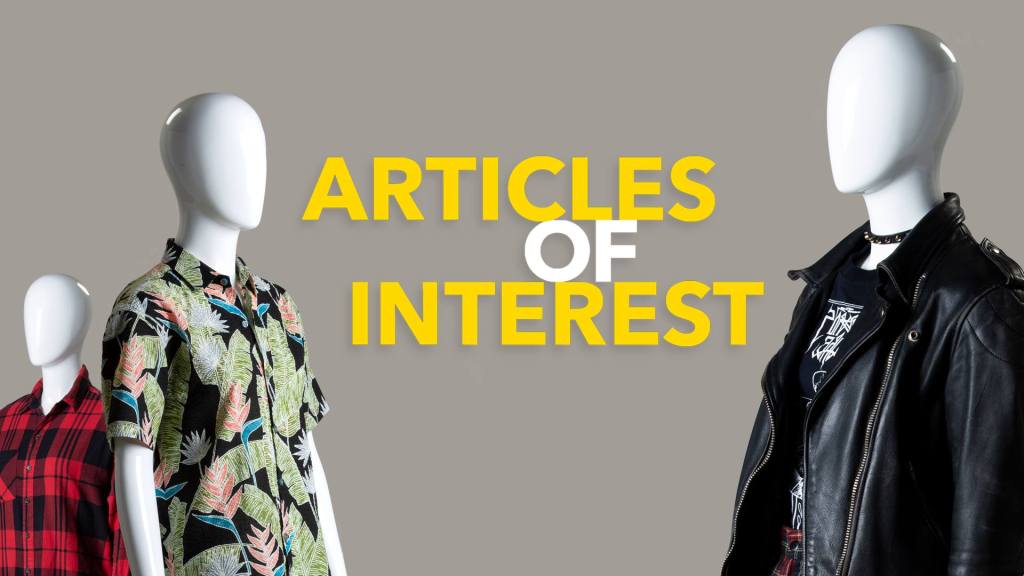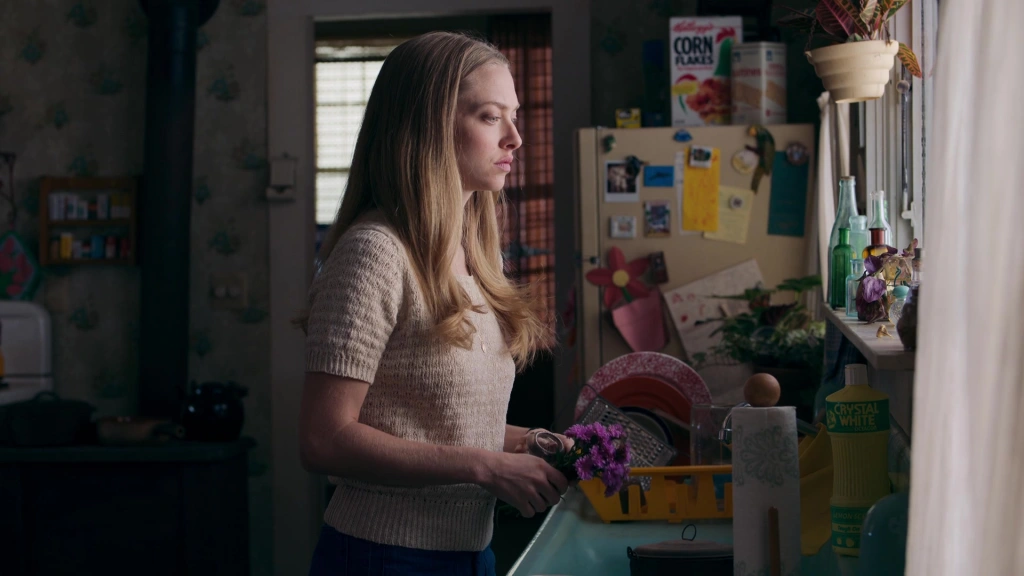Gabriel Urbina is one of the most recognizable names in audio drama podcasting. His seminal Wolf 359, which finished its four-season run at the end of 2017, is widely considered one of the most acclaimed and well-loved pieces of modern audio drama. I was honored to have the opportunity to speak with Urbina on Wolf 359, the incredible podcasting resources he’s written for his website, his newsletter Controlled Chaos, and a little bit about his upcoming projects.
Note: This interview has been abridged.
How would you describe Wolf 359 to someone who’s never listened to it before?
I would describe Wolf 359 as a show about four incredibly different people who are all stuck together in the most isolated space that they could possibly be in, and having to learn how to communicate with each other and with themselves. And that space just happens to be a space station. They have no idea how to talk to each other, or really how to communicate with themselves.
One of the things I love about Wolf 359 is that it can be talked about as a space opera but there’s so many genres in it. What were some of your main inspirations?
One of the biggest ones is something like Buffy the Vampire Slayer, which is a show that is all about that idea of “This week, it was a high school comedy of errors–tune in next week and maybe it’ll be a haunted house story, and the week after that it’ll be um, y’know, an action show.” The constant is the characters, but the genre-shifting, and the show’s structure having elasticity for tone and for the moods in which it operates, that was very consciously built in. Other things I would say: Farscape, the sci fi show for the early 2000s was probably the main inspiration for the show. Battlestar Galactica, which was another one of those shows that was a space opera but also a politics show, and a show about religion, and the world’s most messed-up soap opera, and somehow all of these things are happening within an hour, and they’re doing it better than anyone else does any of those things. Moon was definitely a big influence–and then there’s definitely a lot of other things that I think people frown a little bit on, things they give me a quizzical look about when I say they were an influence for the show–things like My So-Called Life.
People frown at you for My So-Called Life? That’s a great show!
It’s an amazing show! People are generally in agreement about the amazingness of the show. I think it takes them a little bit of effort to see the connection. For me, it’s all about how that show treats its characters.
It’s a deeply humanistic show.
It is! I remember watching it as a teenager and thinking, “I could watch these people argue about the phone book.”
On your website, you have a 33-Question Character Crash Course. How did you come up with this concept?
So, this came out of an exercise that I did in a creative writing class that I did when I was a teenager. Basically, our professor made us all write a short story and bring it into class, and he was deeply, deeply underwhelmed by everyone’s stories. He basically said, “Across the board, this was deeply superficial, and deeply unsatisfying, and it was bad, and you should feel bad.” He said, “As an exercise, here’s what we’re going to do: you’re going to get up in front of the class, and everyone is going to ask you questions, and you’re going to answer–but not as yourself, as your character.” And I remember we were looking at each other like, “Okay, this is gonna be a huge waste of time…” And in about five seconds into the first person we were all going, “Oh no, this is amazing.” Because it was sort of this exercise in making these snap judgments about these people. What I put together for my website is basically a version of that experience. It’s a 33-question questionnaire that you get someone to ask you, and you answer as your character.
Could I ask you four of these questions in regards to four of your characters?
Sure!
First one is for Doug Eiffel, Question 17: “Share the story of the gift that you personally put the most time and energy into.”
Oh, at a certain point in high school, he was trying to really, really impress someone and he made them a tape–a mixtape, in the way that, like, only an obsessive ‘90s teenager can really make a mixtape. More work went into that mixtape than into years of his high school career. It was just, like, extensively curated, and he was probably doing some mixing in the way he was recording the songs–he was probably getting creative with the fade-ins and the fade-outs, and it was probably deeply under-appreciated by the person he gave it to. To this day, he has never gotten over it completely. He is just sort of like, “Some people don’t appreciate the good things in life!”
For Minkowski, Question 22: “When was the last time you felt intensely jealous about someone else? What did they have that you didn’t?”
I think that the last time Minkowski felt intensely jealous of someone else was the last time that she saw someone in the air force that was just kind of a natural commander–y’know,one of those people that you hear about when army people tell their stories and say, “There was just something about that lieutenant or the colonel where if they had asked me to lay down my life, I would have done it, no question.” Some people just do that magnetically and effortlessly. Minkowski is someone who wants to be a fantastic leader, but it doesn’t come to her intuitively. It’s something that she needs to put real effort into, real thought. It was one of those moments like, “I do everything that you do, I know everything that you know, but there’s something just something that you have that I don’t quite, and I don’t even understand what it is, but I want it so badly.”
For Hilbert, Question 2: “Name three things on your personal bucket list.”
Oh! Um . . . [laughs] get revenge, get revenge–no, I’m kidding. I would say for Hilbert, it would be complete his life’s work–fully understand this retrovirus that he has spent years trying to crack. Another one for him would be kind of going back to his place of origin. He had every intention of, “I will go back to the place where my family is from and be there.” And I think that there was also sort of moments of kind of cleaning up after himself. He was deeply aware that he was doing something that he considered for the greater good that he knew had a blast radius. I think that in his mind, it was important that that happened, but it was also important that that wound was cauterized.
For Hera, Question 11: “Which often-admired quality do you personally find overrated?”
Oh, that’s fun! Sort of the idea of extreme politeness to the point of being disingenuous, or being dishonest. I think that Hera kind of has this sort of very complicated mannerism and her own sense of propriety. Deep down, she has this feeling of, “I’m so freaking sick of euphemisms. Let’s just say what we need to say.”
On your site, you also have a Ten-Point Story Structure. It’s sort of a new look at a typical plot structure. How did you use this while making Wolf 359?
This is sort of something that we found really, really helpful when making Wolf 359 in terms of figuring out how we break episode structure. How do we figure out what’s gonna happen in an episode? Intuitively, very early on in the first season, we arrived on the theory that in every episode kind of feels right for there to be ten plot points. We intentionally used “plot points” as a vague term–it’s not necessarily scenes, it’s not necessarily events, but it’s kind of . . . if you described the episode, just in terms of like, “First this happens, and then this happens, and then after that, this happens,” it would usually come out to ten particular items, and it would intuitively follow a sequence. We found that we were falling into this very satisfying pattern of writing episodes, so we wound up writing it out.
You also have a really lovely essay of advice for audio drama beginners. In it, there are twelve different points of advice you give. If you had to choose one to give specifically to yourself in the past, which would you choose?
There’s one that we luckily stumbled onto, and it’s one of those things where . . . sometimes you’re, say, driving, and you, without realizing that something is happening around you, steer through a really dangerous and complicated situation–and then you look back and say, “Woah, were I aware of what I was doing, I never would have managed.” Point #5, which is that restrictions are your friends, is the one where I would have been like, “Young Me, you need to tattoo this to your forehead.” We ended up creating a show where, by the nature of it, it’s one setting, it’s incredibly confined, it’s a limited number of voices, and anytime that a new element shows up, it’s incredibly difficult to justify. That means that we’ve got four characters in one space, and we had to think, “How many different ways can we configure this?” I think that it ended up being the only thing that made us able to make this show and make it successful. We were so zoomed in and so boxed in by the restrictions that we had to figure out how to make it work with that limited palette.
Wolf 359 ended at the end of 2017, and I think it’s clear that audio drama is such a different world from where it was when your show started.
For the better, I’d say!
I’d love to hear your take on how you think it’s changed.
Well, I think a lot of people remember that audio drama is a medium. There are a lot of shows that have come around while we were on the air–so things like Welcome to Night Vale to The Bright Sessions to Homecoming. They’ve really kind of attracted people to the medium and reminded them, “Oh right, this is not just a plausible medium, but a really, really cool one.” There’s something very uniquely special about only listening to a story–it’s not this kind of discount TV made at an even lower price. There’s something special about a story that you get to visualize completely. Seeing the number of podcasts in the “Arts” section on iTunes just multiply in the last couple of years is amazing, and especially above everything else, how many people have gone, “I never saw myself represented in fiction, and I didn’t think I would ever see it–and then I heard these stories, and I realized I could do it. And now I’m here. And now I’m telling all these stories I needed to hear when I was younger.”
When I first started Wolf 359, people told me, “Don’t be an idiot. The Night Vale bubble is going to burst. This is a popular, gimmicky thing. In a year from now, people are gonna be doing a different thing, and nobody’s going to care about audio drama podcasts anymore.” And I think it’s clear that that’s not the case, and audio dramas are just going to get bigger, and more interest, and more diverse.
One of the things that frustrates me is that traditional journalism still has a tendency of looking down at audio dramas. Do you think that’s one of the reasons why, that they’re still stuck in that “The Night Vale bubble will burst” mindset?
Any medium that is trying to establish its legitimacy–any medium; we’ve seen it in television, we’ve seen it in film, and we’ve seen it with comic books–any time that there’s a new medium that is trying to go, “No, we’re serious. No, we’re an art form”–there’s always a certain amount of punching down certain members of that medium. When you saw the rise of film criticism, and the people who were trying to establish film as a legitimate medium, the first thing they did was go, “These films are art, these films are not.” If you’re in French, and you’re in black and white, and you’re experimental, you’re art; if you have Robert Mitchum and you’re a Western, you’re just entertainment.” I can’t tell you how many times I’ve seen a podcast journalist who is trying to establish podcasting as a legitimate medium go, “Well, radio dramas . . . we can all agree that those don’t work–but all of these others aspects of podcasting, they’re really, really great.” This is something I’ve seen over and over and over again over the past four years, and I cannot tell you how many times I’ve spoken to people that cover podcasting, and as soon as I mention that my podcast is an audio drama, all of the air goes out of the room. I think there’s only much we can do but keep telling stories, and at some point, the attitude will change, but I still see a lot of journalism still entrenched in that attitude.
What are you listening to?
I mean, the best show ever, Wooden Overcoats is back now! I am full on with the third season of Wooden Overcoats. Since 2016, so much of my daily energy is devoted to keeping up with the political podcasts. I’ve been listening to a lot of Hello Internet which is CGP Grey’s everything he thinks is interesting about education, the internet, and the world. He and his partner Brady just talk about the world, and I think they’re two of the most intelligent and insightful people on the planet right now.
I wanted to touch on your newsletter, Controlled Chaos. I love that it’s so many things at once. Can you give a run-down of exactly what it is for readers?
The sort of tagline of Controlled Chaos is that it’s a newsletter about modern creativity and hectic living, which is designed to give me carte blanche to put whatever I’m thinking about at that particular moment into it. Most issues of Controlled Chaos have a section where I talk about what I’m working on that week, what I’m writing, what I’m putting my creative energies towards. After that, it’s mostly what am I doing when I’m dicking around on the internet? I talk about what I’ve been listening to, what I’ve been reading. I’ll put together what is helping me procrastinate each week.
Why did you decide upon a newsletter as your format?
A friend of mine has been running a newsletter for about two years, and for about two years I’ve been hearing, “You know, ever since I started my newsletter, the air tastes fresher in the morning, and my thoughts all focus themselves way easy, and my toast is so delicious–everything is shinier and happier,” and I’m just like, “Yes, yes, yes, you like your newsletter, I got it.” But then eventually, I realized every week you need to write, like, “Okay guys, here’s all the cool things I did this week,” so you’re going out and doing more cool things. I realized I could take that and turn it into a productivity model. I never want to send out a newsletter that’s like, “Here’s what I’ve been working on: nothing. This week I did no things at all.”
Are there any future projects you can tell us about?
Unfortunately, very little that I can tell you about!
That’s fair, that’s fair!
There’s a lot of work going on. Here’s what I will say: I’m working on a couple of different things right now. Some of them are short, bouncy, fun things; some of them are long, ponderous, dramatic things. Some of them are in the world of audio drama, and some of them are outside the world of audio drama. Unless something goes really quite terribly wrong, you should have new things from me in the coming months. Something that I can say: I will be writing an episode for this season of SAYER, another fantastic audio drama. That is happening sometime this year, details to be announced!








Leave a comment